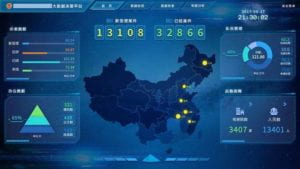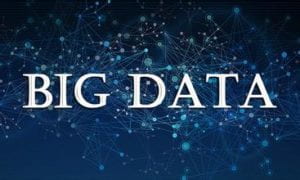Big Data and Modern mass media
Wenjun Fang (wf646)
The changes brought by big data have appeared in all areas, such as the media. No matter the traditional media or social media, they all had more connections with the big data. In the 2019 China International Big Data Industry Expo, editor Xu from the People’s Daily used a practical example to illustrate how the traditional newspaper connects with the big data. “One of our journalists,” he said, “used the People’s Daily database to write her article ‘Who are the Chinese people’s old friends.’ She used relevant word frequencies to sort out the international friends who have been called ‘old friends’ since the founding of New China, and analyze the changes in the global environment as well as the adjustment of foreign policy.” Using data to capture new facts and discover connections between different news pieces became a new trend.

On the other hand, big data also helps on the news’s immediacy and improve news production efficiency. With the help of artificial intelligence, readers are able to ‘listen’ to the newspaper rather than read it. The product named Guoguo is a little robot that able to read newspapers in seven different languages. Moreover, journalists can also use this product to transfer a one to two-hour interview with a manuscript in five minutes. What supported behind is the database containing a huge number of news articles that were released before, so the little robot knows the structure and a journalist. The journalists then have more time to think, which improves the new production efficiency and quality. At the same time, Guoguo can also help the journalist to analyze a news event faster and offer more numbers to support it.

For users and readers, big data can help the platform better understand their interests and recommend more personalized content. Though this is still a controversial topic today, we cannot deny that personalized recommendation makes more people enjoy reading since reading something interesting. People who disagree with the personalized recommendation technique believe that such a system will narrow a person’s interest. People will lose the chance to learn about the world in another way and finally formed information cocoons. They never communicate with other communities or people who are having different interests from them. However, I believe that big data or personalized recommendation is the only reason for the formation of information cocoons. People will only take the initiative to contact or choose to believe in content that conforms to their previous ideas in most cases. People will ignore the part that they are not interested in a book and has no connection with the algorithm. It is necessary to be careful when using new technology, but we should also believe that new communication technologies are making better, not worse.

Leave a Reply